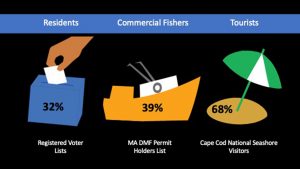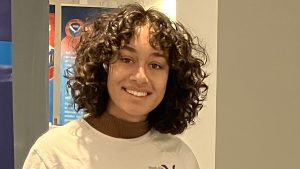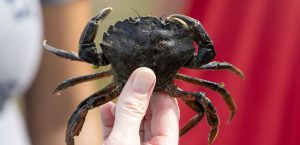Search results for: find%20airline%20tickets%20cheap%20last%20minute%20phone%20number%201-800-299-7264
Research Measures Views on Seals and Sharks
Newly released research results highlight striking differences and some similarities in the way visitors, voters, and commercial fishermen view seals and white sharks on Cape Cod. The findings of the Woods Hole Sea Grant-funded project can help advance marine conservation, promote responsible stewardship, and foster co-existence. From June to September 2021, representative samples of Cape…
Read MoreECP-2000-06
ECP-2000-06
Read MoreRhythmic Beach Cusp Formation: A Conceptual Synthesis
Rhythmic Beach Cusp Formation: A Conceptual Synthesis Seymour, R.J. and D.G. Aubrey Marine Geology, Vol. 65, pp. 289-302, 1985 WHOI-R-85-017
Read MorePattern of Inheritance of Microsatellite Loci in the Squid Loligo pealed (Mollusca: Cephalopoda)
Pattern of Inheritance of Microsatellite Loci in the Squid Loligo pealed (Mollusca: Cephalopoda) Maxwell, M.R., K.M. Buresch, and R.T. Hanlon Marine Biotechnology, Vol. 2, pp. 517-521, 2000 WHOI-R-00-011
Read MoreCellular Localization of CYP3A Proteins in Various Tissues from Pilot Whale (Globicephala melas)
Cellular Localization of CYP3A Proteins in Various Tissues from Pilot Whale (Globicephala melas) Celander, M.C., M.J. Moore, and J.J. Stegeman Environmental Toxicology and Pharmacology, Vol. 8, pp. 245-253, 2000 WHOI-R-00-009
Read MoreCitizen Science: Improving Water Quality in Waquoit Bay
Citizen Science: Improving Water Quality in Waquoit Bay By Dr. Nicole Millette Nicole Millette in the lab March 2018 – Nutrient pollution, particularly nitrogen, is a widespread problem in coastal waters, and a vexing issue for environmental managers as well as those living near these waters. As a Sea Grant-funded Postdoctoral Fellow in Marine Policy,…
Read MoreBulletin: New Shoreline Change Data Reveal Massachusetts is Eroding
Bulletin: New Shoreline Change Data Reveal Massachusetts is Eroding Approximately 75 percent of the U.S. ocean shoreline is eroding. Massachusetts’ ocean-facing shore is no exception. A recent study of shoreline change in Massachusetts by the U.S. Geological Survey, Woods Hole Oceanographic Institution Sea Grant Program, and Cape Cod Cooperative Extension reveals that approximately 68 percent,…
Read MoreMeet the Intern: My journey into the world of lobster
By Kiran Johnson I am allergic to lobster. I grew up in Chicago, and deep dish pizza is our pride and joy, not lobster rolls. When I moved to Boston to study journalism and environmental science at Northeastern University, my college-student budget prioritized coffee over seafood dining experiences. And so it was fitting, then, that…
Read MoreMarine Mammals In Our Backyard
Marine Mammals In Our Backyard Background All mammals: breathe air, give birth to live young, nurse their young, are warm-blooded, and have hair (baby whales and dolphins actually have small hairs on their rostrums (nose) when born and it eventually sheds away leaving behind small follicles). Marine mammals have a range or territory where you…
Read MoreMarine Invaders: Green crabs and other local invasive species
Professional learning workshop for informal and formal educators Grades 6-12 December 3, 2021 9 a.m. – 4 p.m. Join us to learn the basics of invasive species, discover the marine invaders we find on Cape Cod, dive into green crab genetics (real life examples of some middle school genetics concepts), and explore how climate change…
Read More


